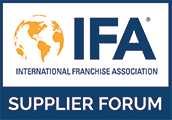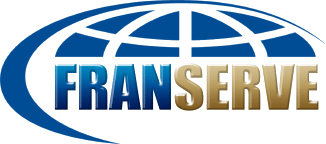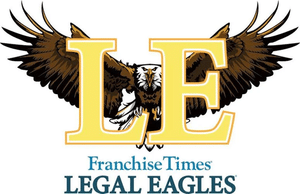Section 1 of Item 11 lists the franchisor’s obligations and assistance given to the franchisee prior to the franchisee’s opening of the franchised outlet. We specifically need to state your assistance with:
- Site Selection
- Building out the franchisee’s premises
- Hiring and training employees
- Providing necessary equipment, signs, fixtures, inventory, and supplies.
We will draft this section of your Item 11 based on the franchisor’s pre-opening obligations contained in the franchise agreement.
This section will provide the expected amount of time it will take for a franchisee to open the franchised outlet following the date that he or she signs the franchise agreement.
Section 3 of Item 11 lists the franchisor’s post- opening obligations to the franchisee during the term of the franchise agreement. We specifically need to state your obligations regarding:
- Managing Brand Funds
- Setting Prices
- Developing Products and Services that franchisees will offer to customers
- Improving or developing the franchisee’s franchise business
- Establishing administrative procedures, inventory controls, or accounting standards
- Resolving operational problems
We will draft this section of your Item 11 based on the franchisor’s post-opening obligations contained in the franchise agreement.
When your system has about 20 franchisees, you may want to consider creating a franchisee council as a means to communicate ideas. If you do create a council, we recommend that you draft by-laws that will govern how it is operated. We also recommend that a franchisee council acts in an advisory capacity only, and that it does not have operational or decision-making power.
In this section of Item 11, we need to disclose (i) whether you have the power to form, change and dissolve a franchisee council and (ii) how members are selected.
For this section, you must disclose:
- Whether the franchisor is obligated to conduct advertising
- The media used for any advertising (e.g., print, radio, television, or Internet)
- The source of the advertising
- The geographical scope of the advertising (i.e., local, regional, or national)
- Whether franchisees must contribute to an advertising fund or spend any specified amount on advertising in their local area
While the systemwide fund to which franchisees are required to make regular contributions is often referred to as an advertising fund, we encourage you to call it a brand fund as the brand fund is less confusing and broader than advertising. The brand fund is not just advertising but anything involving brand awareness. This includes website development, sponsorships of certain events that use brand monies, public relations, and non-profit fundraising events. For most emerging franchise systems, the brand fund money “creates the creative” on behalf of all franchisees. Each franchisee is responsible for spending their local marketing dollars to push that creative out to the customers in their territory.
Financial Statements
Whether your franchisees have access to the financial statements of the brand fund or not, we recommend that you provide an unaudited statement to any franchisees that request them. This will force you to keep good records and a reminder not to do anything questionable with your brand fund expenditures. Even if you decide not to allow franchisees to see how the fund is spent, at some point, an unhappy franchisee could hire an attorney and force you to produce documentation of where you used the money. Lack of transparency is a sure way to stunt the growth of your system. Instead, get into the habit of being an open book and having the franchisees understand why you are making decisions, where you are spending the brand fund money, and how it will benefit them.
Each year when you update your FDD, you are required to disclose, by percentage, how brand fund monies were spent in the previous fiscal year. You must disclose the percentage spent on production, the percentage spent on media placement, the percentage spent on administrative expenses, and the percentage spent on other use(s) and describe the other use(s).
Waive the Fee?
We hear from new franchisors a common question, “We’re not doing much, so can we just waive the fee for now?” Our advice is to always charge from the beginning. If you wait a few years, franchisees are going to push back and say, “Why should I start paying into the brand fund now? I don’t want to spend money, nor do I see the benefit.”
Remember the long-term value of building the $20 million enterprise. This is one of those areas that’s incredibly important, as it’s challenging to get franchisees who are used to not paying to start paying. If you parked for free for years, how would you feel when you finally had to pay for parking? Even if you knew you were obligated to at some point, human nature says you won’t be happy about it.
See Tom Spadea’s article in the Franchise Dictionary Magazine on “When Should You Start Your Franchise Brand Fund.”
Best Practices
While you may think you don’t have any branding expenditures, in reality, you most likely do. Keep track of all the money spent on creating your brand from day one. This includes developing the logo, building the website, etc. All of this can and should be recouped. In fact, if franchisors really accounted for this, they could show deficit spending in the brand fund for the year, meaning they are going out of pocket to support the brand in the early years. This changes the narrative, from the franchisees not getting value to them getting more value than they are paying for. You should always be making the case of why being part of your system is good for the franchisees, and the brand fund is a great place to get into that habit on day one.
Pay careful attention; if you pay yourself or your employees for conducting advertising, the FDD must specifically state that you can use brand fund money for staff salaries related to advertising. This is an area that we can work on together. Let us know, as your franchise attorneys, what you are doing, where the money is going, and we can help give you the guardrails so you don’t create a problem for yourself down the road.
Regarding the computer systems, for our purposes of drafting your FDD, we need to know what it is and how it functions. For example, does it do inventory control, scheduling, customer appointment scheduling, reporting, etc.? Will you, the franchisor, have remote and independent access to the franchisee’s systems? If so, it must be included.
Best Practice
We recommend that you have access and full transparency into your franchisee’s business operation from day one. Part of your value proposition is being able to compare locations and create benchmarks. Having access to each location’s computer system will allow you to make comparisons. If you don’t create that culture from day one, it will be challenging to change later.
Here you will provide the table of contents and page counts of your operations manual as it looks on the day you issue your franchise agreement. Many operations manuals now are in electronic form, and web page counts are an acceptable form of disclosure.
Your manual will change as your franchise operation procedures change, but the FDD will only need to be updated once a year with the then-current table of contents.
In disclosing your training program, we encourage you to under-promise and over-deliver. Provide a conservative number of training hours in the training section to prevent any complaints that your training program wasn’t as comprehensive as you claimed it would be.
Item 11 is the section of the FDD where you highlight the experience of your training personnel. Unlike the Item 2 disclosure, which is limited to a summarized 5-year work history only, the Item 11 disclosure requires you to describe each franchise training instructor’s experience with the franchisor and experience with the subject matter the instructor teaches.
Best Practice
If you do not have a dedicated trainer for your new franchisees, you can state that your training program is provided under the guidance of you or one of your main team members. We often hear that a franchisor doesn’t know who’s doing their training when the create their FDD. By placing the president, CEO, or founder in this position, you can tout their experience and still have flexibility on who actually teaches the class.
See Tom Spadea’s article in the Franchise Dictionary Magazine “Top of the Class.”
Sample Item 11
ITEM 11: FRANCHISOR’S ASSISTANCE, ADVERTISING,COMPUTER SYSTEMS, AND TRAINING
Except as listed below, Belmont is not required to provide you with any assistance.
Pre-Opening Assistance
Before you open your business, Belmont will:
- Designate your exclusive territory (Franchise Agreement, Paragraph 2).
- Assist you in selecting a business site (Franchise Agreement, Paragraph 3). You select your business site within your exclusive area subject to our approval. Your site must be at least 8000 square feet, must have parking spaces, and must have an average of 250 cars per hour driving by. Although not required by the Franchise Agreement to do so, Belmont assists in site selection by telling you the number of new car registrations, population density, traffic patterns, and the proximity of the proposed site to other Belmont Muffler Shops. We must approve or disapprove your site within 20 days after we receive notice of the proposed location. (Franchise Agreement, Paragraph 6.)
- Franchisees typically open their shops within four to seven months after they sign a franchise agreement. The factors that affect opening time are the ability to obtain a lease, financing, or building permits, zoning, and local ordinances. Other factors include weather conditions, shortages, and delays in installation of equipment, fixtures, and signs.
- Within 30 days of your signing the Franchise Agreement, assist you in finding and negotiating the lease or purchase of a location for your muffler shop. (Franchise Agreement, Paragraph 4.) You will purchase or lease your store location from independent third parties.
- Within 60 days of your signing the Franchise Agreement, provide written specifications for store construction or remodeling and for all required and replacement equipment, inventory, and supplies. (Franchise Agreement, Paragraph 4.) See Item 8 of this disclosure document.
- Within 60 days of your signing the Franchise Agreement, provide blueprints for your store construction or remodeling and obtain health, sanitation, building, utility, and sign permits for your premises. You pay for the construction and remodeling. (Franchise Agreement, Paragraph 5.)
Post-Opening Assistance
During the operation of the franchised business, Belmont will:
- Develop new products and methods and provide you with information about developments. (Franchise Agreement, Paragraph 8.)
- Telephone you each week for the first 90 days after you open your shop to discuss your operational problems. (Franchise Agreement, Paragraph 9.)
- Hold annual conferences to discuss sales techniques, personnel training, bookkeeping, accounting, inventory control, performance standards, advertising programs, and merchandising procedures. There is no conference fee, but you must pay all your travel and living expenses. These elective conferences are held at our Jackson, Minnesota, headquarters or at a location chosen by a majority vote of all franchisees. (Franchise Agreement, Paragraph 9.)
Advertising
Belmont provides advertising materials and services to you through a national advertising fund (the “National Fund”). Materials provided by the National Fund to all franchisees include video and audio tapes, mats, posters, banners, and miscellaneous point-of-sale items. You will receive one sample of each at no charge. If you want additional copies, you must pay duplication costs. (Franchise Agreement, Paragraph 10.)
You may develop advertising materials for your own use, at your own cost. Belmont must approve the advertising materials in advance and in writing. However, all Internet advertisements must be prepared and posted by Belmont only. (Franchise Agreement, Paragraph 10.)
Belmont occasionally provides for placement of advertising on behalf of the entire Belmont system, including franchisees. However, most placement is done on a local basis, typically by local advertising agencies hired by individual franchisees or advertising cooperatives. Belmont reserves the right to use advertising fees from the Belmont system to place advertising in national media (including broadcast, print, Internet, and other media) in the future. In the past, Belmont has used an outside advertising agency to create and place advertising. Neither Belmont nor its affiliate receives payment from the National Fund. Advertising funds are used to promote the products sold by the franchisee and are not used to sell additional franchises. (Franchise Agreement, Paragraph 11.)
The National Fund is a nonprofit corporation which collects advertising fees from all franchisees. Each franchisor-owned store of Belmont contributes to the National Fund on the same basis as franchisees. All payments to the National Fund must be spent on advertising, promotion, and marketing of goods and service provided by Belmont Muffler. You must contribute the amounts described in Item 6, under the heading “Advertising fees and expenses.”
The National Fund is administered by Belmont’s accounting and marketing personnel under the direction of the Advertising Council. The Advertising Council acts as the board of directors of the National Fund. The Advertising Council has eight members: the President, Treasurer, Vice President-Marketing, and Vice-President-Operations of Belmont; and four franchisee representatives who are elected by the governing board of the Belmont Franchisee Advisory Council. Belmont may change the number of Advertising Council members, but not the portion of mangers/franchisees. We cannot dissolve the advertising council without the approval of the Belmont Franchisee AdvisoryCouncil. (Franchise Agreement, Paragraph 11.)
An annual audited financial statement of the National Fund is available to any franchisee upon request. During the last fiscal year of the National Fund (ending on December 31, 2006), the National Fund spent 39% of its income on the production of advertisements and other promotional materials, 36% for media placement, 18% for general and administrative expenses, and 7% for other expenses(the purchase of glassware given to Belmont customers as part of a promotional campaign).
Once your shop opens, you must participate in the local advertising cooperative established in your Designated Marketing Area where your store is located. The amount of your contribution to the local advertising cooperative is described in Item 6 under the heading “Advertising Fees and Expenses.”
Each local advertising cooperative must adopt written governing documents. A copy of the governing documents of the cooperative (if one has been established) for your Designated Marketing Area is available upon request. Each cooperative may determine its own voting procedures; however, each company-owned Belmont Shop will be entitled to one vote in any local advertising cooperative.
The members and their elected officers are responsible for administration and operation of the cooperative. Advertising cooperatives must prepare quarterly and annual financial statements. The annual financial statement must be prepared by an independent CPA and be made available to allfranchisees in that advertising cooperative.
Computer Requirements
Belmont requires you to have a computer system and Internet access. Belmont does not specify specific computer hardware or an Internet supplier. However, you must have Microsoft Word, Access, and Excel programs. Your computer must be in good repair, with sufficient memory to carry out ordinary business functions, as provided in the Operating Manual. You also must buy an electronic cash register from an approved supplier. See Items 7 and 8 of this Disclosure Document. Belmont will not have independent access to the electronic cash register or computer system, but reserves the right to conduct periodic audits of any accounting records contained in such hardware.
Operating Manual
Belmont will loan you a copy of our operating manual that contains mandatory and suggested specifications, standards, and procedures. This manual is confidential and remains our property.
Belmont will modify this manual, but the modification will not alter your status and rights under the Franchise Agreement (Franchise Agreement, Paragraph 9.) The table of contents is attached as Exhibit F.
| Training Program | |||
| Subject | Hours ofClassroom Training | Hours of Training On-The-Job | Location |
| Real Estate and Development | 8 | 20-30 | Franchise Market Area |
| Administration | 24 | 24 | Jackson, Minnesota |
| Operations Training | 40 | 160 | Jackson, Minnesota |
| Store Opening Assistance | 0 | 80 | Franchised Location |
| Follow-up Training | 0 | 24-40 | Franchised Location |
Belmont conducts training programs for both you and some of your employees. The training program will include four segments, which are conducted as needed. Belmont does not charge for this training or service, but you must pay the travel and living expenses for you and your employees. All training occurs at Belmont’s Jackson, Minnesota, headquarters, the first weekend of each month.Training is conducted by Mark Smith, who has 20 years of experience in operating a muffler shop, 12 years of that with Belmont.
Belmont’s Real Estate & Development Training introduces you to the site selection, real estate, and construction and acquisition strategy portions of the business. It will begin promptly after you sign the Licensee Agreement and will include 1 day of orientation and 2-3 days of site visits once a site is identified. You (or if your business is a corporation or partnership, a principal of the business)must attend and complete, to Belmont’s satisfaction, Belmont’s Real Estate & Development Training.
Belmont’s Administration Training provides you with business training and store management training. The program introduces you to the human resources, compensation, fleets, marketing, legal, EH&S, credit, security, training, point of sale, and pricing aspects of the business. The Administration Training will begin approximately 45-60 days before the opening of your initial store, and will include approximately 3 days of classroom instruction and approximately 3 days of on-the-job training at stores operated by Belmont affiliates or licensees. You (or if your business is a corporation or partnership, a principal of the business) must attend and complete, to Belmont’s satisfaction,Belmont’s Administration Training.
Belmont’s Operations Training for your initial manager focuses entirely on store management and is intended to train qualified individuals to manage stores. The Operations Training will begin approximately 45-60 days before the opening of your initial store and will include approximately 5 days of classroom instruction and approximately 20 days of on-the-job training at a store operated by a Belmont affiliate or licensee. Your initial manager must complete, to Belmont’s satisfaction, Belmont’s store management training program portion of Operations Training before your store opens.
Belmont’s Store Opening Training is designed to assist you in the opening of a new store. Store Opening Training will be held at your store, approximately 1 week before the opening of your store, and will include operational training and assistance. The exact duration and timing of Store Opening Training, however, will depend on your preparation,
Approximately 3-6 months after your first store opens, an operations representative will return to your store and provide Belmont’s Follow-Up Training.
It is your responsibility to ensure that all subsequent managers and employees are trained in Belmont’s systems and procedures and that Belmont’s systems and procedures are utilized at your store. Belmont may audit your store at any time to ensure compliance with Belmont systems and procedures.
This is a sample section from a fictional FDD for Belmont Muffler Shops that was prepared by the Federal Trade Commission as a compliance guide for franchisors preparing their FDD. These are used to provide an idea of what these items may look like in an FDD, but keep in mind, your FDD will most likely vary significantly from these examples.
These pages are for informational purposes only and do not establish an attorney-client relationship between the author and the reader. Additionally, we make no representations or warranty to any of the information as legal information is subject to change over time. Before taking action on any of the information presented, you must discuss this with your attorney to ensure it is relevant and applicable to your current situation.







